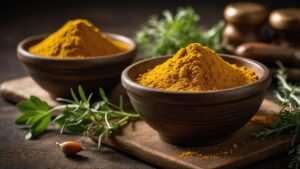
Detoxification has become one of the most buzzworthy topics in natural medicine. If you’re like me, you’ve probably seen people all around you touting juice cleanses, herbal teas, and detox diets as miracle solutions to remove “toxins” from the body. It sounds convincing, right? I remember the first time I considered detoxing. It was years ago, after a holiday season filled with indulgent foods. My body felt sluggish, and I thought, “Maybe I need a detox to reset.”
But here’s where things get tricky. Not everything labeled “detox” is rooted in science, and some myths have become so pervasive that they feel like facts. I’ve seen friends throw themselves into week-long detoxes, expecting to come out feeling reborn, only to be disappointed. So, what’s the truth behind detoxing? Let’s break down some common myths and facts to uncover what natural medicine really offers in terms of detoxification. I’ll share my experiences, what I’ve seen work, and what I think is just marketing fluff.
Read Also:
- Top 5 Safe and Natural Detox Methods to Rejuvenate Your Body
- Can Detox Teas Really Cleanse Your System? The Truth About Ingredients, Benefits, and Side Effects
- Juice Cleanses: Health Boost or Dangerous Fad? The Truth Behind the Hype
Myth: Your Body Can’t Detox Without Help
I’ve heard this claim more times than I can count. The idea that our bodies are somehow “clogged” with toxins that need flushing is popular in wellness circles. But here’s the fact: your body detoxifies itself every day. The liver, kidneys, skin, and lungs are all part of an intricate system that naturally eliminates harmful substances.
For instance, when I work with clients who feel bloated or sluggish, I often ask about their lifestyle and diet. Most of the time, simple adjustments—like eating more fiber, drinking enough water, and reducing processed foods—do wonders. You don’t need to starve yourself on a juice cleanse to get your body working again. A friend of mine did a 7-day lemon water cleanse once, and I remember how exhausted she looked by day three. By the end, she didn’t feel any better. In fact, she felt worse.
However, that’s not to say we can’t support our body’s natural detox pathways. That’s where natural medicine shines. I like to think of detox as less of a “flush” and more of a “support system.” You don’t have to go to extremes, but you can certainly give your organs the nutrients and rest they need to perform at their best.
Support Your Liver Naturally
- Eat Bitter Greens: Kale, dandelion greens, and arugula are rich in nutrients that support liver health. Personally, I make sure to have a salad with bitter greens at least three times a week.
- Drink Herbal Teas: Milk thistle and dandelion root teas are two of my favorites. Both are known for their liver-supportive properties. I find them to be soothing and effective, especially when I’ve had a stressful or indulgent week.
- Sleep Well: This one often gets overlooked. Sleep is when your body detoxifies the most, especially the brain. I like to use lavender essential oil to wind down before bed, and I’ve noticed a big difference in my sleep quality.
Fact: Certain Herbs Support Detoxification

Natural medicine practitioners have used herbs for detox for centuries. But not all detox herbs are created equal. Some, like the aforementioned milk thistle, are well-researched for their ability to support the liver’s detoxification processes. Others, like burdock root, have long been used in traditional medicine to purify the blood and improve skin health.
A good example is a patient I worked with who had recurring skin issues, likely caused by internal imbalances. We used a combination of burdock root and turmeric supplements to help his body deal with inflammation. Within weeks, his skin began to clear up, and he felt more energetic. It wasn’t an overnight miracle, but it worked because we supported his system from the inside out.
My Top Herbs for Detox:
- Milk Thistle: Helps regenerate liver cells and protect against damage.
- Burdock Root: Aids in blood purification and promotes skin health.
- Dandelion Root: Supports liver function and acts as a mild diuretic to help the kidneys.
Myth: Fasting Is the Best Way to Detox
I’ve had so many people ask me about fasting as a detox method, and my answer is always: it depends. While short-term fasting can give your digestive system a break and may have certain benefits, extended fasts can do more harm than good. A friend of mine tried a 5-day water fast once. By the end, she was light-headed, irritable, and had barely any energy. She swore she’d never do it again, and I don’t blame her.
In natural medicine, I believe in balance. A fast of 12-16 hours (like intermittent fasting) can help your body enter a mild state of detox. But going without food for days? It’s often unnecessary and unsustainable. Instead, focus on eating clean, whole foods that naturally support your detox organs.
A Balanced Approach to Fasting:
- Try Intermittent Fasting: Aim for a 12-16 hour fasting window overnight. It’s gentle on the body and gives your digestive system a break.
- Hydrate with Infused Water: Add cucumber, mint, or lemon to your water. It’s refreshing and supports hydration without depriving your body of essential nutrients.
- Eat Whole Foods: Focus on nutrient-dense meals rather than restricting yourself. I always recommend vegetables, lean proteins, and healthy fats to keep the body nourished.
Fact: Detoxing Improves Skin and Energy Levels
One thing I love about natural detoxification is how it can impact your skin and energy. When your liver and kidneys are functioning well, your skin often shows it. I’ve noticed this in myself after periods of clean eating and incorporating detox herbs. My skin looks clearer, and I feel more energetic.
A client of mine was struggling with acne and low energy. After we adjusted her diet and added in detox-supportive herbs like nettle and dandelion, she saw noticeable improvements within a month. Her skin started glowing, and she said she hadn’t felt that energized in years. The key wasn’t deprivation—it was balance and nourishment.
Foods That Support Glowing Skin:
- Berries: Packed with antioxidants, berries help neutralize free radicals that can damage the skin.
- Nuts and Seeds: Rich in essential fatty acids, they promote healthy skin by reducing inflammation.
- Leafy Greens: Full of vitamins A and C, they help the skin repair and rejuvenate.
Myth: Detox Diets Are Quick Fixes
The biggest myth of all, in my opinion, is that detoxing is a quick fix for long-term issues. It’s tempting to believe that a week-long detox will undo years of poor eating, stress, or lack of sleep, but it doesn’t work that way. I’ve learned from both personal experience and my practice that sustainable health is about consistency.
One of my clients came to me after trying multiple detox diets, each time hoping for miraculous results. What she really needed was to build a healthier lifestyle over time. We worked on incorporating daily detox habits like drinking more water, eating real food, and exercising regularly. Slowly but surely, she started to feel better—without the extremes.
Long-Term Detox Habits:
- Stay Hydrated: Drink at least eight glasses of water daily to help your kidneys flush out toxins.
- Eat Fiber-Rich Foods: Whole grains, vegetables, and fruits help keep your digestive system regular, which is crucial for detoxification.
- Exercise Regularly: Sweat helps eliminate toxins through the skin. I find yoga and brisk walks to be excellent for this.
Conclusion
Detoxification is a hot topic, but not everything you hear is true. I’ve seen firsthand how natural medicine can support the body’s natural detox processes without extreme diets or fasting. Whether through herbs, whole foods, or balanced lifestyle choices, it’s possible to gently cleanse your body and feel revitalized. Remember, detox is not a quick fix—it’s a lifelong practice of supporting your health.








